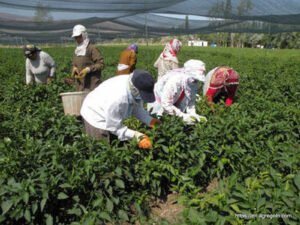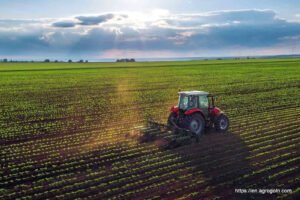Agricultural Education in Botswana: Empowering Farmers for Sustainable Development. Botswana, a landlocked country in Southern Africa, has a rich agricultural heritage that has sustained its communities for centuries. As the nation aims for sustainable development and food security, the role of agricultural education becomes paramount. Agricultural education equips farmers, agricultural professionals, and policymakers with the knowledge and skills needed to address challenges, embrace technological advancements, and promote sustainable farming practices. In this article, we will delve into the state of agricultural education in Botswana, its evolution, challenges, and the efforts being made to empower farmers and drive agricultural growth.
Agricultural Education in Botswana: Empowering Farmers for Sustainable Development
Historical Overview of Agricultural Education in Botswana
Agriculture has always been an integral part of Botswana’s economy and culture. Traditionally, agricultural knowledge and skills were passed down through generations, reflecting the deep connection between the people and the land. However, as the nation began to modernize and seek self-sufficiency, formal agricultural education emerged as a means to boost agricultural productivity.
In the 1960s and 1970s, the Botswana Ministry of Agriculture spearheaded the establishment of agricultural education and training institutions. The Botswana College of Agriculture (now Botswana University of Agriculture and Natural Resources) was founded in 1979 to provide higher education in agricultural sciences. The establishment of agricultural schools and training centers across the country also aimed to train a new generation of skilled farmers and agricultural experts.

Current State of Agricultural Education
1. Formal Education Institutions:
The Botswana University of Agriculture and Natural Resources (BUAN) remains the primary institution for higher agricultural education in the country. BUAN offers undergraduate and postgraduate programs in agriculture, horticulture, animal science, agricultural economics, and more. It provides students with a comprehensive understanding of agriculture’s various facets, emphasizing modern techniques and sustainable practices.
2. Vocational Training Centers:
In addition to formal higher education, Botswana has established several vocational training centers to cater to the needs of aspiring farmers and agricultural workers. These centers offer practical, hands-on training in areas such as crop production, livestock management, and agribusiness.
3. Extension Services:
Extension services play a crucial role in disseminating agricultural knowledge and best practices to farmers in rural areas. The Botswana Ministry of Agriculture and other organizations provide extension officers who work directly with farmers to offer guidance on modern techniques, pest control, irrigation, and other aspects of agriculture.

4. Research and Innovation:
The country’s agricultural education landscape is increasingly emphasizing research and innovation. Universities, research institutes, and government agencies collaborate to conduct research on crop improvement, soil health, climate adaptation, and sustainable farming practices. This research informs policy decisions and empowers farmers with evidence-based practices.
Challenges in Agricultural Education
Despite significant strides in agricultural education, Botswana faces challenges that need to be addressed to maximize the impact of these initiatives:
1. Limited Access to Education:
While formal agricultural education opportunities exist, not all aspiring farmers have access to them. This is particularly true for those in remote rural areas, where educational infrastructure and resources are scarce.
2. Outdated Curriculum:
The agricultural sector is evolving rapidly, with advancements in technology, climate-smart practices, and sustainable farming methods. Updating the curriculum to reflect these developments is essential to equip students with relevant knowledge and skills.
3. Lack of Incentives:
Agricultural education often faces a lack of incentives for students to pursue careers in the sector. The allure of urban opportunities can draw talent away from agriculture, leading to a potential shortage of skilled professionals.
4. Climate Change and Water Scarcity:
Botswana, like many countries in Southern Africa, faces the challenges of climate change and water scarcity. Agricultural education needs to prioritize climate-smart practices that promote resilience and adaptability.

Efforts and Initiatives
Recognizing the importance of agricultural education in achieving sustainable development, the Botswana government and various organizations have taken significant steps to address the challenges:
1. Rural Education and Outreach:
To improve access to agricultural education in rural areas, the government has expanded the reach of vocational training centers and launched mobile education programs that bring training directly to remote communities.
2. Curriculum Revitalization:
Efforts are underway to update the agricultural curriculum to align it with modern agricultural practices and innovations. Integrating climate-smart techniques and promoting sustainable agriculture are central to these updates.
3. Scholarships and Incentives:
To attract students to agricultural studies, the government and private organizations offer scholarships, grants, and incentives to those pursuing agricultural degrees. These measures aim to make agricultural education more appealing and financially accessible.
4. Collaboration and Research Funding:
The government actively collaborates with universities, research institutions, and international partners to conduct research and fund projects that address critical agricultural issues. Research findings inform policy decisions and promote best practices among farmers.
Conclusion
Agricultural education is an indispensable pillar of Botswana’s journey towards sustainable development and food security. By equipping farmers, agricultural professionals, and policymakers with the knowledge and skills they need, Botswana can overcome challenges and embrace opportunities in the agricultural sector.
As the nation continues to prioritize agricultural education, it must also address existing challenges to ensure equitable access, relevance, and effectiveness. By leveraging modern technology, promoting research and innovation, and nurturing a new generation of skilled agriculturalists, Botswana can lay the groundwork for a thriving and sustainable agricultural future. With a strong agricultural education system, the country can build resilience, empower farmers, and contribute to the economic growth and well-being of its people.
